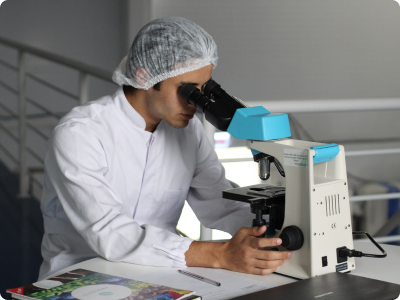LIfT BioSciences, a rapidly emerging biotech and global leader in neutrophil immunotherapies, has announced it has been awarded a €12 million grant from Ireland’s Disruptive Technologies Innovation Fund (DTIF) to advance its Immuno-Modulatory Alpha Neutrophils (IMANs) through first-in-human clinical trials, expected to begin in Q4 2026. This is the largest single grant ever awarded by the DTIF and will support a consortium formed by LIfT with the University of Galway and Hooke Bio. Together, the partners will combine expertise in oncology, manufacturing, and immuno-analytics to accelerate the development of next-generation cancer immunotherapies.
The funding will enable an investigator-initiated clinical trial in patients with metastatic cervical cancer and head and neck cancer who have exhausted all standard treatment options, including checkpoint inhibitors. The study will begin with escalating IMAN doses in sequential patient groups to establish a biologically active dose, before expanding to further patients who will receive IMANs in combination with checkpoint inhibitor therapy. The trial is designed to test both feasibility and safety, while also aiming to demonstrate IMANs’ ability to overcome treatment resistance in solid tumours.
Alex Blyth, Chief Executive Officer of LIfT BioSciences, described the award as a pivotal moment:
The grant awarded from DTIF is a significant milestone for LIfT as we expand our presence in Ireland and advance toward closing the second round of our Series A financing. By combining LIfT’s innovative immunotherapy platform with the University of Galway’s deep expertise in oncology, patient care, and advanced manufacturing, and Hooke Bio’s analytical expertise, we are enhancing our clinical-stage research and accelerating the path to delivering IMANs to patients. The majority of this grant will support CMC manufacturing and the clinical trial itself, positioning LIfT at the forefront of next-generation cancer immunotherapies.
Ireland’s Minister for Enterprise, Tourism and Employment, Peter Burke, praised the project:
The N-LIfT project has come through a rigorous evaluation process and the level of funding awarded reflects its potential to be a game-changer in cancer therapy. We want to fund projects that will make a real difference to people’s lives. I’m excited to see the impact it will deliver.
The University of Galway will be central to delivering the trial, ensuring that patients in the West of Ireland will have access to such cutting-edge treatments. “Cancer remains one of the most complex and dynamic diseases,” said Dr Michael McCarthy, Consultant Medical Oncologist and Principal Investigator at University Hospital Galway. “IMANs have the potential to overcome key limitations of current cancer treatments by activating both the innate and adaptive branches of the immune system. This dual stimulation enables a comprehensive anti-tumour response, representing a transformative advancement in cancer therapy.” Professor Sean Hynes, Consultant Histopathologist and Translational Cancer Researcher, echoed the sentiment, noting that neutrophils, the body’s “first responders,” could become a critical tool in the fight against cancer.
Hooke Bio will bring its Mera “body-on-a-plate” platform to the collaboration, enhancing immuno-analytics and supporting therapy response rates. “We’re very excited to be able to employ our Mera platform to support the development of LIfT’s immuno-oncology therapeutic. This project highlights the strength of the Irish clinical research ecosystem and the power of collaboration,” said Dr Mark Lyons, CEO of Hooke Bio.
The Disruptive Technologies Innovation Fund, a €500 million challenge-based fund established under Project Ireland 2040, is managed by the Department of Enterprise, Trade and Employment and administered by Enterprise Ireland. LIfT, registered in Ireland as Eolaíocht Bhitheach LIfT Teoranta, has a base in An Spidéal, Co. Galway, supported by Údarás na Gaeltachta to foster regional employment.
By combining cutting-edge science, government support, and a strong Irish research ecosystem, the IMAN project represents a bold step toward addressing one of the greatest challenges in oncology – helping patients who have run out of treatment options.



